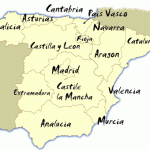A recent article in the British Telegraph reports that the government of the Spanish region of Extremadura is funding a new sexuality education campaign directed at teens aged 14-17. The campaign takes an empowerment approach towards teens and sexual pleasure, leading with the slogan, “Pleasure is in your own hands.” Through hip fanzines, flyers and workshops, the campaign provides sex positive information about masturbation, as well as contraception and self-respect. Full text of the Telegraph’s article can be found here

As might be expected, religious conservatives in Spain (affiliated with the Roman Catholic Church) are not happy with the pleasure campaign: the Telegraph quotes Hernández Carrón of the right wing People’s party as saying, “‘(t)his is an intimate subject that should be dealt with at home.'” He complains further that “(w)e have become the laughing stock of Spain.”
Despite conservative opposition, this move is part of a larger shift within more progressive sexual health circles towards a “sex positive” perspective on sexuality and sexual pleasure. Indeed, in their Declaration of Sexual Rights, the World Association for Sexual Health lists sexual pleasure as #5 out of 11 sexual rights:
#5. The right to sexual pleasure. Sexual pleasure, including autoeroticism, is a source of physical, psychological, intellectual and spiritual well-being.
How did it come to be that pleasuring one’s own body came to be seen as forbidden to begin with? In his book, Solitary Sex: A Cultural History of Masturbation (2003), Thomas Laqueuer (UC Berkeley, History) traces some of this history to the Enlightenment concept of “onania” (which claims that masturbation actually causes physical harm): “The dangers of onanism became a key concern of Enlightenment thinkers, whose preoccupation with social order made them see this inherently private activity as self-abuse in the most literal sense” (review in The New Yorker). This same review in The New Yorker rightly points out that sources of guilt and sexual shame also most certainly existed prior to and well beyond the touches of Western European Enlightenment.
For the religious opponents of masturbation in Spain, The Catechism of the Catholic Church (#2352) may more than enough reason to oppose pleasure for its own sake:
“Both the Magisterium of the Church, in the course of a constant tradition, and the moral sense of the faithful have been in no doubt and have firmly maintained that masturbation is an intrinsically and gravely disordered action.”137 “The deliberate use of the sexual faculty, for whatever reason, outside of marriage is essentially contrary to its purpose.” For here sexual pleasure is sought outside of “the sexual relationship which is demanded by the moral order and in which the total meaning of mutual self-giving and human procreation in the context of true love is achieved.”138
Sexuality education and the right to sexual pleasure are not the only areas where Spain is becoming a leader in progressive sexuality policy; in 2005 Spain also became one of just five nations that currently recognize gay marriage. [along with the Netherlands (2001), Belgium (2003), Canada (2005), South Africa (2006)]. Additionally, Norway and Sweden have both recently passed legislation of gender-neutral marriage bills (Jan. 1, 2009 and May 1, 2009)– thus effectively also legalizing same-sex marriage.
Bibliography
- Laqueur, Thomas W. 2003. Solitary Sex: A Cultural History of Masturbation. Zone Books.

Comments 5
Jonathan H. Harwell — November 17, 2009
The curriculum is available online at http://www.cjex.org/index.php/component/content/article/97.html
Kari Lerum — November 17, 2009
Thank you, Jonathan! This will inspire me to brush up on my Spanish!
Sex ed « Caffeineaddict — November 19, 2009
[...] 20, 2009 · Leave a Comment So there is this really awesome article over at Sexuality & Society , about the Spanish region of Extremadura, which is funding a sex ed campaign that involves [...]
Iamcuriousblue — December 4, 2009
It has never ceased to amaze me how much more progressive the Spanish left has been on issues of sexual freedom than the Nordic and British Left. Which is why sex work remains decriminalized there even after many years of mostly Social Democratic administrations.
Sexual Health: Loving thyself « Urban Prairie Animal — January 2, 2010
[...] Health: Loving thyself | January 2, 2010 Sexuality and Society recently posted about a region of Spain called Extremadura which is funding a sexuality education campaign that [...]